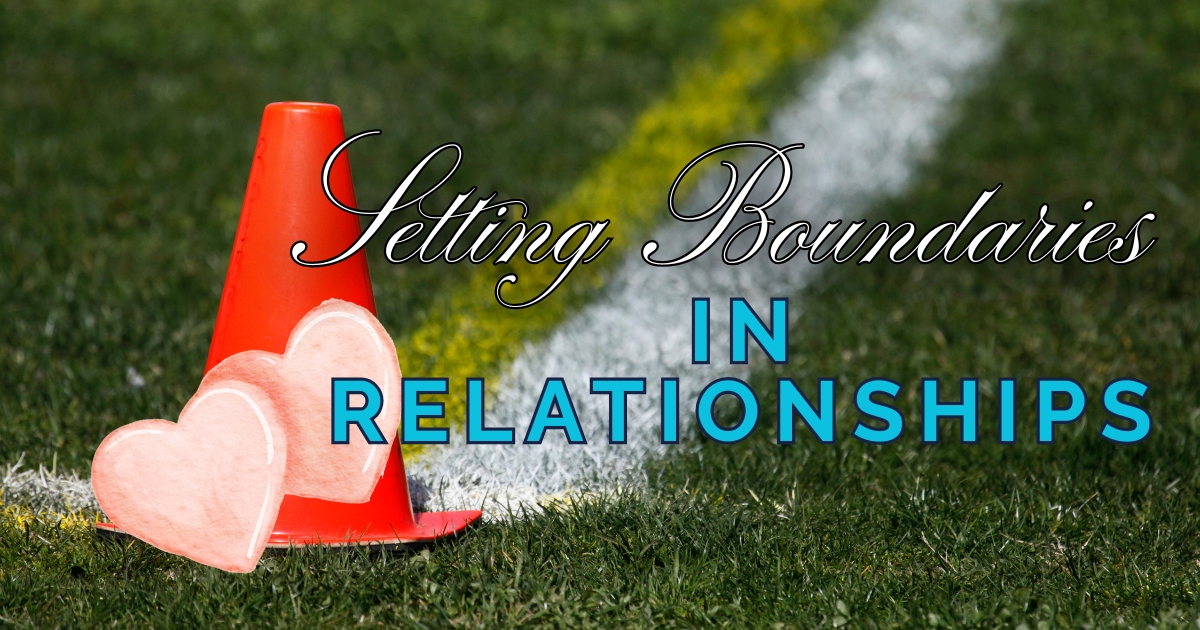
Setting Boundaries for a Healthier Connection: Why They Matter in Relationships
Do you remember the exhilaration of a new connection, where conversations flowed easily and everything seemed to click? Fast forward a bit, and that same relationship can feel complicated or even frustrating without clear communication.
That’s where boundaries come in. While they might sound restrictive, healthy relationship boundaries are what allow love to grow. They’re the key to creating trust, respect, and deeper connections with others.
But what’s the importance of boundaries in relationships? Why do they really matter? Because they define what you need and allow others to meet you in a space of mutual respect. Without them, relationships can become overwhelming, one-sided, or even toxic.
Setting boundaries for a healthier connection ensures both partners feel valued and heard. For those over 50, this can be particularly important—as you’ve gathered wisdom from life but still crave meaningful, fulfilling relationships that serve your emotional needs.
This blog lays out how you can establish boundaries in your relationships, why it’s worth your time, and how those boundaries can set the stage for better love and connection. You’ll leave with actionable tips and renewed confidence in your ability to create healthier bonds.
Why Do Boundaries Matter so Much?
When thinking about the importance of boundaries in relationships, it’s helpful to see them as the framework of respect and balance. Without boundaries, one person might unintentionally dominate, leaving the other feeling unseen or used. Having healthy relationship boundaries allows partners to communicate their needs without guilt or conflict.
For example, you might need time to recharge after a busy day, but your partner prefers constant interaction. A clear boundary could be taking an hour to unwind, so you can fully engage later on. This small adjustment respects both individuals’ needs.
Boundaries prevent emotional burnout and create room for deeper understanding. They also foster independence. That’s especially important for people over 50 who might have lived decades blending schedules or expectations with previous partners or raising children.
Now it’s your time to share your wants, needs, and limits to build a relationship that truly honors YOU.
Signs You Might Need Better Boundaries
Not sure where to begin? Here are a few signs your relationship could benefit from setting boundaries for connection:
- You Feel Emotionally Drained: If spending time with someone leaves you feeling tense or exhausted, it could be a sign you’re overextending yourself. This often happens when you’re giving too much and not getting the support you need in return.
- You Avoid Certain Conversations: When you’re constantly afraid of upsetting your partner, it’s hard to be honest and authentic. Avoiding important topics can create a gap in understanding and lead to even more problems later.
- Your Needs Feel Ignored: If your wants and feelings seem secondary or unimportant, there might be an imbalance in the relationship. Feeling overlooked can leave you frustrated and make time with your partner less fulfilling.
Recognizing these signs is the first step toward creating the room you need for healthier communication and mutual respect.

The Basics of Setting Healthy Relationship Boundaries
Setting boundaries doesn’t have to feel intimidating. It’s really about defining how you want to be treated and clearly communicating those expectations. Here are simple steps to help you get started:
- Know Your Limits: Reflect on what makes you comfortable or uncomfortable in relationships. Whether it’s about time, behavior, or communication styles, being clear about your limits helps set the groundwork.
- Communicate Your Boundaries: Share your feelings in a respectful, non-blaming way. For example, instead of saying, “You never listen to me,” try, “I feel unheard when we’re interrupted during conversations. Can we make more time to talk?”
- Learn to Say No: Understand that “no” is not a dirty word. It’s a vital part of prioritizing your well-being.
- Be Consistent: Stick to your boundaries once they’ve been set. If you waver or allow exceptions too often, it signals to others that they don’t need to respect them.
By practicing these steps, you’ll create a solid foundation of healthy relationship boundaries that, over time, ease conflict and deepen your connection.
Common Boundary Challenges (and How to Overcome Them)
Even with the best intentions, you might face challenges. Relationships don’t always shift instantly, so patience is key. Here are some scenarios you may encounter and tips to manage them:
- Guilt: Many people, especially caregivers or nurturers, find it hard to enforce boundaries without feeling guilty. Remember, boundaries aren’t selfish. They leave everyone better supported in the long term.
- Pushback: A partner or loved one might not understand or may resist your boundaries initially. Address this calmly and reaffirm why the boundary is important to your well-being.
- Uncertain expectations: Sometimes, you might not be sure what you need from the relationship. Give yourself time to process your feelings, journaling or speaking with a counselor if needed.
These challenges are normal and don’t mean you’re failing. They’re part of the progress toward building healthier connections.
Practical Examples of Boundaries in Relationships
Here are some real-life examples of boundaries that can strengthen relationships:
- Time Boundaries: “I need some alone time on Sunday mornings to recharge, but I’m looking forward to spending the afternoon with you.”
- Communication Boundaries: “I appreciate open discussions, but I need us to avoid shouting during disagreements.”
- Physical Boundaries: “I’m not ready to hold hands or show affection right now, but I’ll tell you when I feel comfortable.”
- Digital Boundaries: “I prefer that we don’t share each other’s text conversations or social media accounts. I value privacy.”
Each of these examples reinforces respect while keeping the relationship balanced and supportive.
Why Boundaries Lead to Better Love Over 50
Many people over 50 hesitate to enter new relationships. You may feel uncertain about communicating your needs or wonder if you’re too “set in your ways.” But boundaries make dating easier—not harder. Why? Because they reveal who you are and help others meet you in an authentic, healthy way.
Boundaries remove unnecessary stress. They allow both partners to be clear and direct, with the freedom to enjoy time together without misunderstandings. Setting boundaries for a healthier connection enhances emotional intimacy, whether you’re in a long-term relationship or starting fresh.
Signs of Love and Healthy Connection
If you’re older and looking for love, boundaries help you notice the real signs someone loves you and respects you. A loving partner will:
- Actively listen to your needs and feelings.
- Respect boundaries without complaint or resentment.
- Make an effort to express feelings in relationships.
These behaviors highlight mutual respect, which is the foundation of fulfilling partnerships. Setting boundaries ensures both of you are on the same page and allows love to grow steadily and securely.
Love Doesn’t Have an Expiration Date
Dating over 50 can be an exciting new chapter in life. With the importance of boundaries in relationships, you can create healthier and more respectful connections that truly work for both people.
Setting boundaries for connection helps build trust, while healthy relationship boundaries ensure both partners feel valued and understood. It’s never too late to find or deepen love. For more tips and advice on dating, sign up for our bulletin today!











